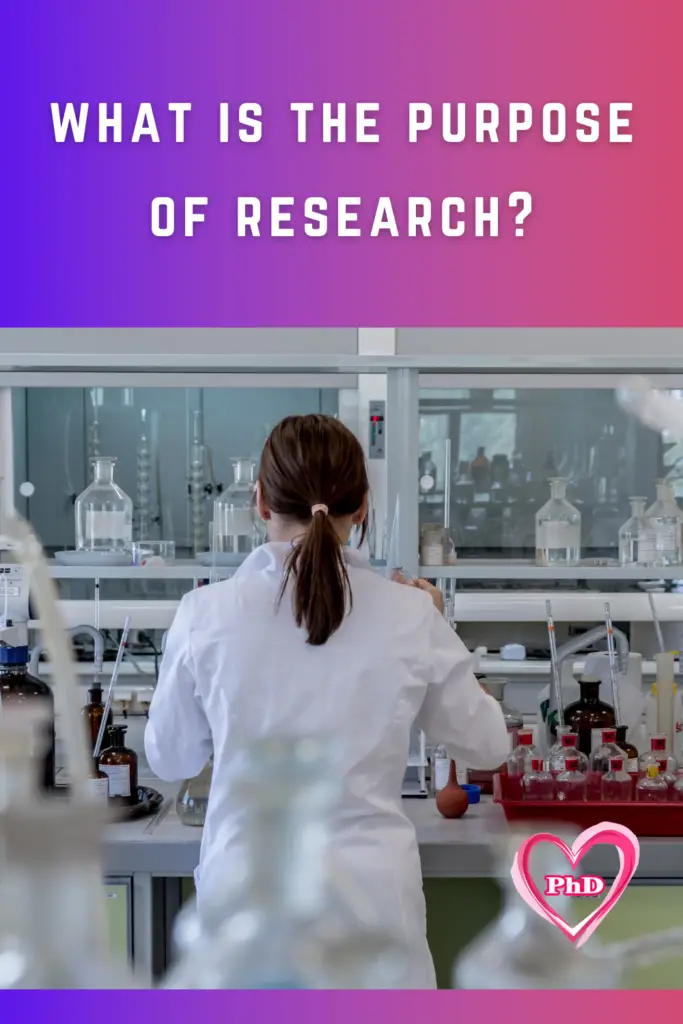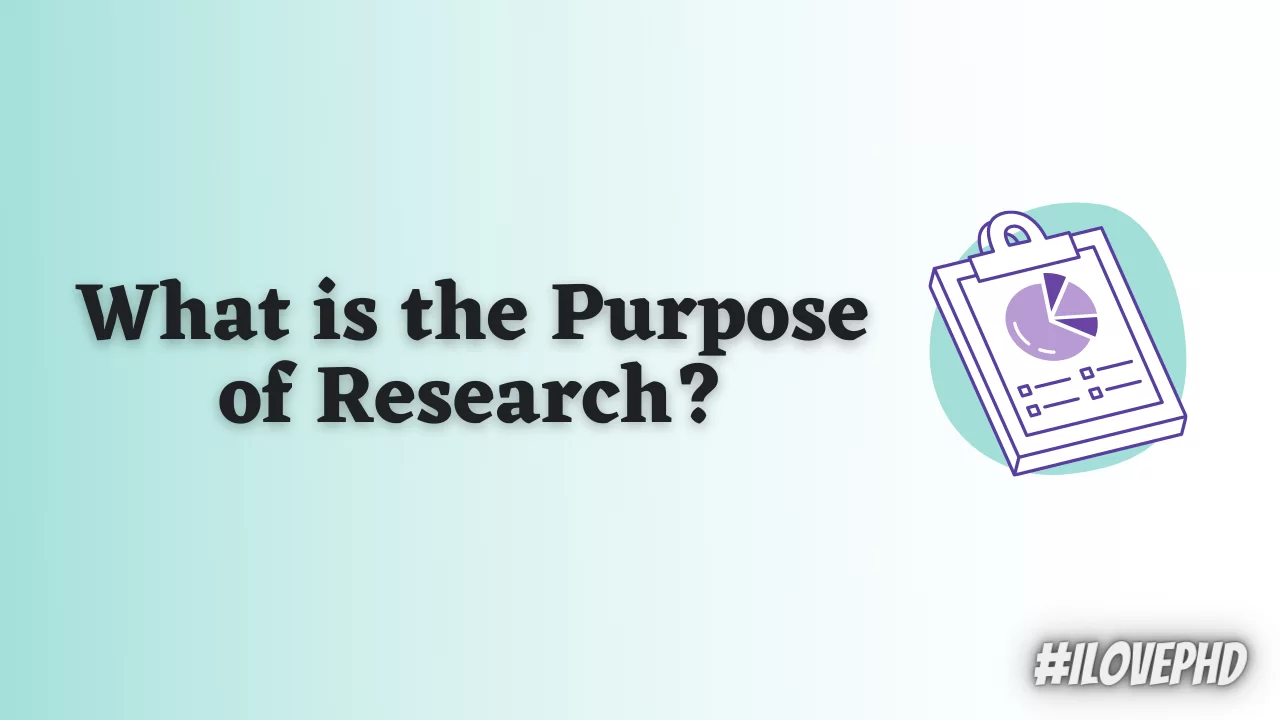The purpose of research is a declarative sentence that summarizes the specific topic and goals of the research study. Which gives the reader an accurate, concrete understanding of the findings. The basic properties of the research purpose are given below:
“Research is a systematic investigation (i.e. the gathering and analysis of information) designed to develop or contribute to generalisable knowledge”
- The research purpose should be Specific – not general, broad or obscure
- It should be defined concisely (within one or two sentences)
- The research goal should be obvious. It should not be vague, ambiguous or confusing to the readers.
- All the statements should be Goal-oriented. Also, stated in terms of desired outcomes.
Example of the Purpose of Research
Example: The effect of telling stories on children’s literacy skills.
1. The best way to start is by stating the general purpose of the Study:
The overall purpose of this study is to examine the effect of telling stories on nursery children’s literacy skills.
2. Identify the specific purpose about every key variable:
Telling stories, reading fluency, reading comprehension, vocabulary, and interest in reading are the specific variables.
3. State the specific purposes for the research study:
- Identify how often nursery teachers tell stories in the classroom.
- Determine the effect of telling stories on nursery children’s reading fluency.
- Determine the effect of telling stories on nursery children’s reading comprehension.
- Determine the effect of telling stories on nursery children’s vocabulary.
- Determine the effect of telling stories on nursery children’s interest in reading.
8 Characteristics of Research
The investigation of the research topic can be classified into 8 ways:
1. Empirical Research
Empirical research is conducted based on proven scientific methods derived from real-life observations and experiments.
2. Logical Research
This research methodology follows sequential procedures based on valid principles.
3. Cyclic Research
As the name suggests the cyclic research starts and ends with questions.
Eg: A research process should lead to a new line of questioning.
4. Analytical Research
In analytical research, data is generated, recorded and analyzed using proven techniques to ensure high accuracy and repeatability while minimizing potential errors and anomalies.
5. Controlled Research
Controlled research investigates with vigorous measures by keeping all research variables constant, excluding the variables in under investigation.
6. Research on Objective
Sound judgment is used by the researcher to ensure that the research findings are valid.
7. Research based on statistical treatment
A mathematical treatment is applied in this case to turn the available data into something more meaningful from which information can be derived.
8. Hypothesis-based Research
The hypothesis-based research design produces evidence that satisfies the research objectives and can be used to prove or refute the hypothesis. It ensures that the analysis study can be replicated and that the findings are credible.
Research is the backbone of human progress, a systematic approach to understanding the world around us and solving complex problems. Whether you’re a student, academic, or professional, understanding the purpose and characteristics of research can unlock incredible insights and opportunities.
What is Research? Defining the Fundamental Concept
Research is a methodical investigation designed to discover, interpret, and develop new knowledge or solutions. It’s not just about collecting information, but about:
- Asking critical questions
- Challenging existing assumptions
- Generating innovative insights
- Creating actionable understanding
The Core Purposes of Research: Why We Investigate
1. Knowledge Expansion
Research pushes the boundaries of human understanding. By exploring uncharted territories of knowledge, researchers:
- Uncover new theories
- Challenge existing paradigms
- Create foundational understanding for future innovations
2. Problem Solving
At its heart, research is a powerful problem-solving tool. Researchers systematically:
- Identify complex challenges
- Develop evidence-based solutions
- Create practical strategies for real-world issues
3. Decision Making
High-quality research provides critical insights that inform:
- Policy development
- Business strategies
- Scientific advancements
- Social interventions
Key Characteristics of Effective Research
Systematic Approach
Rigorous research follows a structured methodology:
- Clearly defined objectives
- Systematic data collection
- Controlled investigation
- Objective analysis
Empirical Evidence
Great research is grounded in observable, measurable evidence:
- Quantitative data
- Qualitative insights
- Verifiable results
- Reproducible methods
Objectivity
Credible research maintains:
- Neutral perspective
- Minimized bias
- Open-minded investigation
- Transparent methodology
Ethical Considerations
Responsible research prioritizes:
- Participant protection
- Informed consent
- Integrity of data
- Respect for diverse perspectives
Types of Research: Exploring Different Approaches
- Basic Research
- Pure knowledge generation
- No immediate practical application
- Fundamental understanding of phenomena
- Applied Research
- Practical problem-solving
- Direct real-world implementation
- Targeted solutions for specific challenges
- Exploratory Research
- Initial investigation of unclear problems
- Laying the groundwork for future studies
- Identifying potential research directions
Research Methodology: A Step-by-Step Framework
Step 1: Formulating Research Questions
- Identify knowledge gaps
- Define clear, specific questions
- Establish research boundaries
Step 2: Developing Hypothesis
- Propose potential explanations
- Create testable statements
- Guide investigative process
Step 3: Research Design
- Select appropriate methods
- Determine data collection techniques
- Plan analysis strategies
Step 4: Data Collection
- Gather empirical evidence
- Use multiple data sources
- Ensure data quality and reliability
Step 5: Analysis and Interpretation
- Apply statistical techniques
- Identify meaningful patterns
- Draw evidence-based conclusions
Step 6: Reporting and Communication
- Document findings transparently
- Share results with broader community
- Enable further investigation
Challenges in Modern Research
Despite its importance, research faces significant challenges:
- Funding limitations
- Technological constraints
- Interdisciplinary complexity
- Publication biases
The Future of Research: Emerging Trends
Cutting-edge research is evolving through:
- Interdisciplinary collaboration
- Advanced technological tools
- Open-access platforms
- Global knowledge networks
Authoritative Sources
- National Science Foundation
- Nature Research
- Science Direct
- UNESCO Research Guidelines
- National Institutes of Health Research Portal
What is a Research Hypothesis?
Differences Between Quantitative and Qualitative Research
Conclusion: Embracing the Research Journey
Research is more than a method—it’s a powerful approach to understanding our world, solving complex challenges, and driving human progress. By understanding its purpose and characteristics, we can appreciate the transformative power of systematic investigation.
Hope, this article help you to know about the purpose of research and 8 important research characteristics.

What is the purpose of the Research?


[…] research gathers data in a numerical form which can be put into categories, or in rank order, or measured in […]